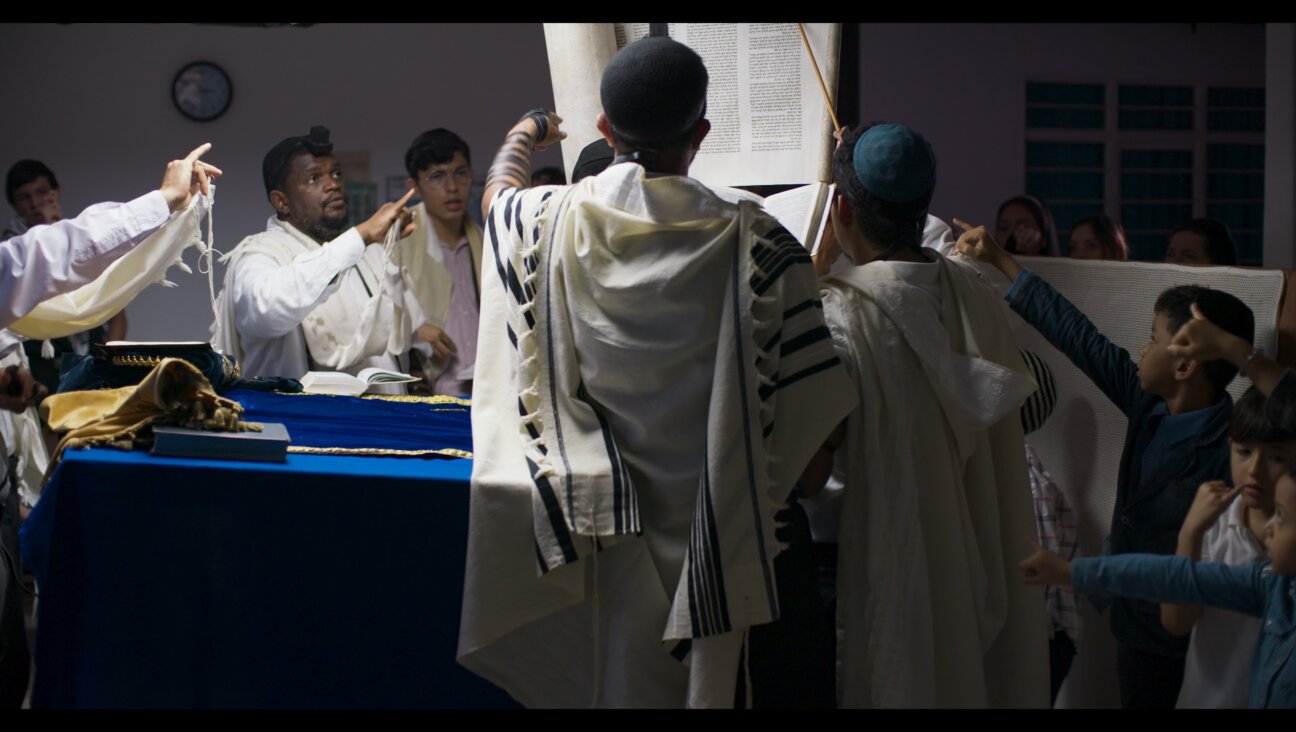Stern College Turns 50
As a member of the second class of Yeshiva University’s Stern College for Women, Ginger Socol remembers shopping on 34th Street, taking biology classes with a total of three students and living in a hotel suite while the dormitory was under construction. Most of all, though, she remembers her roommates — Orthodox young women from Pennsylvania’s Scranton and Pittsburgh and from Milwaukee — who, like herself, had grown up outside the major Jewish center of New York.
“It was an amazement to see so many religious girls,” Socol said in a recent interview with the Forward. “The most interesting thing for me was to be in a place where everybody — basically 95% of the girls — was Orthodox.” She said that her arrival at Stern was like a homecoming, after a childhood as one of the only observant girls in New Britain, Conn.
Over the course of its 50-year history, currently celebrated in an exhibit at the Center for Jewish History, Stern has continued to occupy a unique position at the center of higher education for Orthodox young women. Opened in 1954 with a grant from industrialist Max Stern, the college combines a liberal arts curriculum with a required program of religious studies, as does its all-male companion school, Yeshiva College.
“It has succeeded at being at the cutting edge of the empowerment of women in regard to the study of the traditional texts… over the course of the past 25 years,” said Rabbi Saul Berman, director of Edah, a Modern Orthodox advocacy organization. “Stern College has validated the legitimacy of women becoming talmidei chachamim, of becoming true scholars of Torah knowledge in areas that were previously closed to them.”
Several Stern alumnae have gone on to found their own programs for Talmud studies, particularly in Israel, a trend buoyed by the college’s graduate program for advanced Talmud studies, which is now in its fifth year. At the undergraduate level, Stern offers 85 courses in Jewish studies per semester, all with the aim of helping students develop an ability to engage Jewish texts and culture for themselves, according to the graduate program’s director, Professor Ephraim Kanarfogel. “The main point is not simply to be receptacles, but to study on their own,” he said.
While Stern’s dual mission as both a pre-professional and religious institution is clearly a source of strength — the student body has grown from an initial 28 students to more than 1,000 today — it is not without conflict.
“It’s taking for granted that the large majority of women’s educations will lead to some kind of work,” said Rabbi Yosef Blau, a spiritual counselor to Yeshiva’s male undergraduates. “At the same time, it’s doing so without a specifically feminist agenda.”
But for Wendy Zierler, a professor at Hebrew Union College who graduated from Stern in 1988, this “lack” of an agenda often seemed like an excuse for a separate and unequal arrangement. During her time, she was disappointed by the size of the school’s library and by the unwillingness of Yeshiva College to allow the women’s basketball team to use its athletic facilities despite the fact that Stern had none of its own. “If you’re going to have a women’s school nowadays, you’d better know what your purpose is in being a women’s school and be honest about it,” she said.
To be sure, as Zierler herself acknowledges, Stern has changed with the times. Today the college boasts state-of-the art athletic facilities and science labs, as well as a minor in women’s studies. After retired IRS auditor Anne Scheiber donated $22 million to the college in 1995, scholarships for students, as well as for graduates continuing on to the Albert Einstein College of Medicine, have been expanded.
In interviews with the Forward, a number of current students rejected what they see as outdated stereotypes about the school. “Most people see the typical Stern girl as having the outfit, like a black skirt and black tights, and that they just go to school and that they are looking to get married and that’s all they care about,” said Sharon Weiss, a student council president who graduated in 2003. “I would love everyone to hear that there’s diversity even though we’re all Jews, that there are people from all over with different beliefs and different opinions.”
Indeed, a recent trip to the residence hall found a trio of foreign students — from Europe, Africa and South America — who have found Stern to be an empowering haven, as Ginger Socol did all those years ago.
In fact, Socol has returned. This semester, she’s auditing forensic biology and her fellow students are, by her account, very bright and charging hard. “We’re not willing to settle for second best anymore,” she said. “The girls deserve it. We deserve it.”
The anniversary is being celebrated with an exhibit about Stern’s history at the Center for Jewish History, in New York.
A message from our Publisher & CEO Rachel Fishman Feddersen

I hope you appreciated this article. Before you go, I’d like to ask you to please support the Forward’s award-winning, nonprofit journalism so that we can be prepared for whatever news 2025 brings.
At a time when other newsrooms are closing or cutting back, the Forward has removed its paywall and invested additional resources to report on the ground from Israel and around the U.S. on the impact of the war, rising antisemitism and polarized discourse.
Readers like you make it all possible. Support our work by becoming a Forward Member and connect with our journalism and your community.
— Rachel Fishman Feddersen, Publisher and CEO























